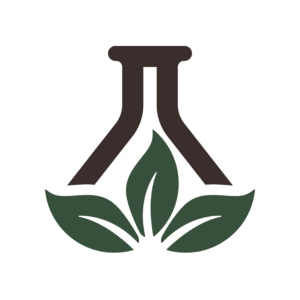Our product stands out from many vegan leather solutions in the industry with its unique features. Properties such as not containing cellulose and absorbing UV rays are features only found in Lignify, making it unparalleled.

Due to its natural properties, cellulose has a high water absorption capacity, leading to the degradation and decay of materials in humid environments. It results in lower durability and elasticity.
Cellulose-based materials are also sensitive to certain chemicals, making them less resistant and short-lived.
LIGNIFY does not contain cellulose.

Ultraviolet light, also known as UV, is a spectrum of sunlight that can be classified into three types based on its wavelengths. UV-C is considered the most harmful for human health, causing issues like skin cancer, respiratory distress, and allergic reactions.
Lignify boasts UV absorption capabilities, thanks to its chromophoric groups containing conjugated double bonds and aromatic systems.
This feature is especially advantageous for individuals seeking sun protection when wearing vegan leather clothing or accessories.
LIGNIFY possesses UV absorption capabilities.

Lignin is a naturally robust polymer found in plant cell walls that grants plants their sturdiness, durability, and flexibility. Just as lignin enhances the robustness and resilience of plants, Lignify products also combine the sturdiness and durability of nature.
LIGNIFY is made from lignin.

While cellulose has a natural inclination to absorb water, leading to material degradation and decay in damp environments,
Lignify stands in contrast with its high resilience to moisture and water.
The innate water-resistant features of lignin can be transferred to bio-composites, subsequently fortifying the water resistance of our vegan leather. This attribute mitigates the risks of deformation or deterioration when exposed to elements like moisture, oil, and water.
Every year, paper production alone generates 100 million tons of lignin waste worldwide. While these wastes are usually used for other purposes like energy or chemical production,
LIGNIFY offers an eco-friendly alternative by developing vegan textile materials from lignin.
LIGNIFY is made by recycling these wastes.

Recycling, processing, and reusing cellulose-based materials can be costly and limited, posing challenges in waste management and increasing environmental impact. Since lignin is considered a waste material, its use helps to reduce waste volume and minimize environmental impact.
Additionally, the utilization of lignin lessens dependency on natural resources, contributing to their preservation.
LIGNIFY is made from existing lignin waste.

By infusing lignin into bio-composites, we can create various textures and aesthetic characteristics. Lignin enhances the bio-composite surface, giving vegan leather a more authentic appearance.
Unlike cellulose-based materials, which have limited design and appearance options due to the constraints of cellulose structure, Lignify provides far more flexibility in design choices.
Lignify offers an expansive colour palette and a wide array of patterns.

Many brands use a complex array of chemical processes to produce vegan leather. Since lignin is a natural polymer, it can be incorporated into bio-composites without the need for chemical treatments.
This simplifies the production process and reduces environmental impact by decreasing chemical usage.
LIGNIFY requires minimal chemical processing .

Lignin is a natural polymer found in plant cell walls and does not exhibit any toxic properties.. The non-toxic nature of lignin offers various advantages, making LIGNIFY a safe and eco-friendly option.
Using non-toxic lignin minimizes the risk of harming users and also greatly contributes to reducing environmental impact during production processes.
LIGNIFY is made from non-toxic materials.

Vegan leather options can often be similar or even higher in price when compared to genuine leather. However, LIGNIFY offers an compelling price advantage. From an economic perspective, lignin is a cost-effective material that is readily available.
Additionally, undergoing fewer chemical processes provides a significant cost advantage. For these reasons, combined with LIGNIFY’s non-commercial environmental mission, it positions LIGNIFY as an appealing choice in terms of price.
LIGNIFY has compelling prices.

LIGNIFY represents a new standard in environmentally responsible waste management. Rich in lignin and crafted entirely from bio-based polyurethane components, our products are designed to disintegrate naturally via enzymatic processes.
This ensures that LIGNIFY leaves behind no chemical residue, fulfilling our pledge to sustainability and ecological balance.

Due to its natural properties, cellulose has a high water absorption capacity, leading to the degradation and decay of materials in humid environments. It results in lower durability and elasticity.
Cellulose-based materials are also sensitive to certain chemicals, making them less resistant and short-lived.
LIGNIFY does not contain cellulose.

Ultraviolet light, also known as UV, is a spectrum of sunlight that can be classified into three types based on its wavelengths. UV-C is considered the most harmful for human health, causing issues like skin cancer, respiratory distress, and allergic reactions.
Lignify boasts UV absorption capabilities, thanks to its chromophoric groups containing conjugated double bonds and aromatic systems.
This feature is especially advantageous for individuals seeking sun protection when wearing vegan leather clothing or accessories.
LIGNIFY possesses UV absorption capabilities.

Lignin is a naturally robust polymer found in plant cell walls that grants plants their sturdiness, durability, and flexibility. Just as lignin enhances the robustness and resilience of plants, Lignify products also combine the sturdiness and durability of nature.
LIGNIFY is made from lignin.

While cellulose has a natural inclination to absorb water, leading to material degradation and decay in damp environments,
Lignify stands in contrast with its high resilience to moisture and water.
The innate water-resistant features of lignin can be transferred to bio-composites, subsequently fortifying the water resistance of our vegan leather.
Every year, paper production alone generates 100 million tons of lignin waste worldwide. While these wastes are usually used for other purposes like energy or chemical production,
LIGNIFY offers an eco-friendly alternative by developing vegan textile materials from lignin.
LIGNIFY is made by recycling these wastes.

Recycling, processing, and reusing cellulose-based materials can be costly and limited, posing challenges in waste management and increasing environmental impact. Since lignin is considered a waste material, its use helps to reduce waste volume and minimize environmental impact.
Additionally, the utilization of lignin lessens dependency on natural resources, contributing to their preservation.
LIGNIFY is made from existing lignin waste.

By infusing lignin into bio-composites, we can create various textures and aesthetic characteristics. Lignin enhances the bio-composite surface, giving vegan leather a more authentic appearance.
Unlike cellulose-based materials, which have limited design and appearance options due to the constraints of cellulose structure, Lignify provides far more flexibility in design choices.
Lignify offers an expansive colour palette and a wide array of patterns.

Many brands use a complex array of chemical processes to produce vegan leather. Since lignin is a natural polymer, it can be incorporated into bio-composites without the need for chemical treatments.
This simplifies the production process and reduces environmental impact by decreasing chemical usage.
LIGNIFY requires minimal chemical processing .

Lignin is a natural polymer found in plant cell walls and does not exhibit any toxic properties.. The non-toxic nature of lignin offers various advantages, making LIGNIFY a safe and eco-friendly option.
Using non-toxic lignin minimizes the risk of harming users and also greatly contributes to reducing environmental impact during production processes.
LIGNIFY is made from non-toxic materials.

Vegan leather options can often be similar or even higher in price when compared to genuine leather. However, LIGNIFY offers an compelling price advantage. From an economic perspective, lignin is a cost-effective material that is readily available.
Additionally, undergoing fewer chemical processes provides a significant cost advantage. For these reasons, combined with LIGNIFY’s non-commercial environmental mission, it positions LIGNIFY as an appealing choice in terms of price.
LIGNIFY has compelling prices.

LIGNIFY represents a new standard in environmentally responsible waste management. Rich in lignin and crafted entirely from bio-based polyurethane components, our products are designed to disintegrate naturally via enzymatic processes.
This ensures that LIGNIFY leaves behind no chemical residue, fulfilling our pledge to sustainability and ecological balance.

Lorem ipsum dolor sit amet, consectetur adipiscing elit. Ut elit tellus, luctus nec ullamcorper mattis, pulvinar dapibus leo.
Lorem ipsum dolor sit amet, consectetur adipiscing elit. Ut elit tellus, luctus nec ullamcorper mattis, pulvinar dapibus leo.
Lorem ipsum dolor sit amet, consectetur adipiscing elit. Ut elit tellus, luctus nec ullamcorper mattis, pulvinar dapibus leo.